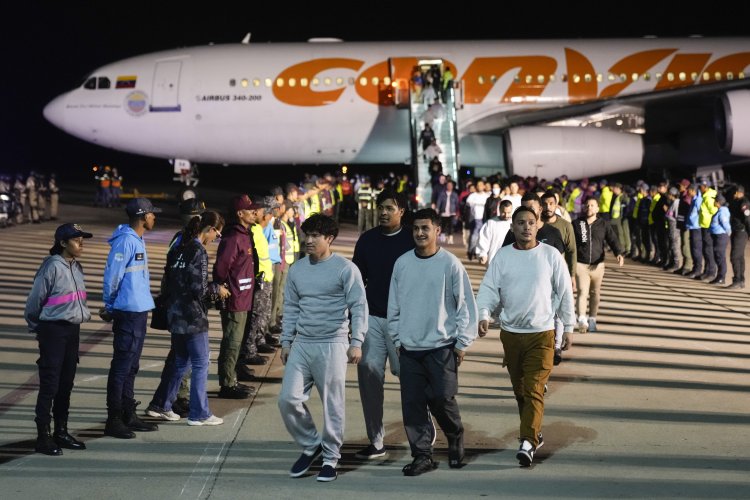Court of appeals rejects Trump’s request to restart deportations under the "Alien Enemies Act"
Trump has sought to utilize the act to rapidly deport individuals accused of gang affiliation, often with minimal due process.

Trump has sought to invoke the Alien Enemies Act of 1798, a seldom-used statute that grants the president special powers during wartime, enabling rapid deportations of alleged gang members with minimal due process. Lawyers representing some of those targeted contend their clients have no connections to the gang.
The ruling featured differing perspectives from the two judges who concurred with the decision to maintain Boasberg’s temporary injunction against the deportations. Judge Karen Henderson, appointed by President George H.W. Bush, and Judge Patricia Millett, appointed by President Barack Obama, expressed distinct rationales for their agreement. Judge Justin Walker, a Trump appointee, dissented.
The Trump administration may choose to appeal this ruling quickly, either to the full bench of the D.C. Circuit or to the Supreme Court.
In their detailed opinions, each judge elaborated on their views. Henderson strongly opposed the government’s claim of unlimited executive power regarding the case. “At the outset, the government’s suggestion that judicial review of the Alien Enemies Act is categorically foreclosed is incorrect,” she stated. Additionally, she argued that Trump's use of the Alien Enemies Act appeared to be a misapplication, as the law was intended to address military invasions rather than facilitate the deportation of migrants. “The theme that rings true is that an invasion is a military affair, not one of migration,” Henderson remarked.
Millett agreed with Henderson in supporting Boasberg’s order, but based her reasoning on the administration’s failure to provide individuals affected by Trump’s actions a fair chance to contest their designations as part of Tren de Aragua. “The true mark of this great Nation under law is that we adhere to legal requirements even when it is hard, even when important national interests are at stake, and even when the claimant may be unpopular,” she noted. “For if the government can choose to abandon fair and equal process for some people, it can do the same for everyone.”
In his dissent, Walker suggested that the individuals targeted by Trump’s action could have filed lawsuits in the Texas district where they were being held instead of in Washington, D.C. He argued that the Trump administration had convincingly shown that judicial intervention could threaten sensitive foreign policy negotiations. “The orders risk the possibility that those foreign actors will change their minds about allowing the United States to remove Tren de Aragua members to their countries,” Walker indicated. “Even if they don’t change their minds, it gives them leverage to negotiate for better terms.”
Henderson's opinion also hinted at the possibility that the administration could still prevail in the ongoing legal battle. She acknowledged that the litigation is still in its early stages and described her analysis as a “preliminary view of the merits.” “The government will have ample opportunity to prove its case and its evidence should be afforded the requisite deference due the President’s national security judgments,” she stated.
The appeals panel reached its ruling just 48 hours after hearing oral arguments in the case.
Allen M Lee for TROIB News












